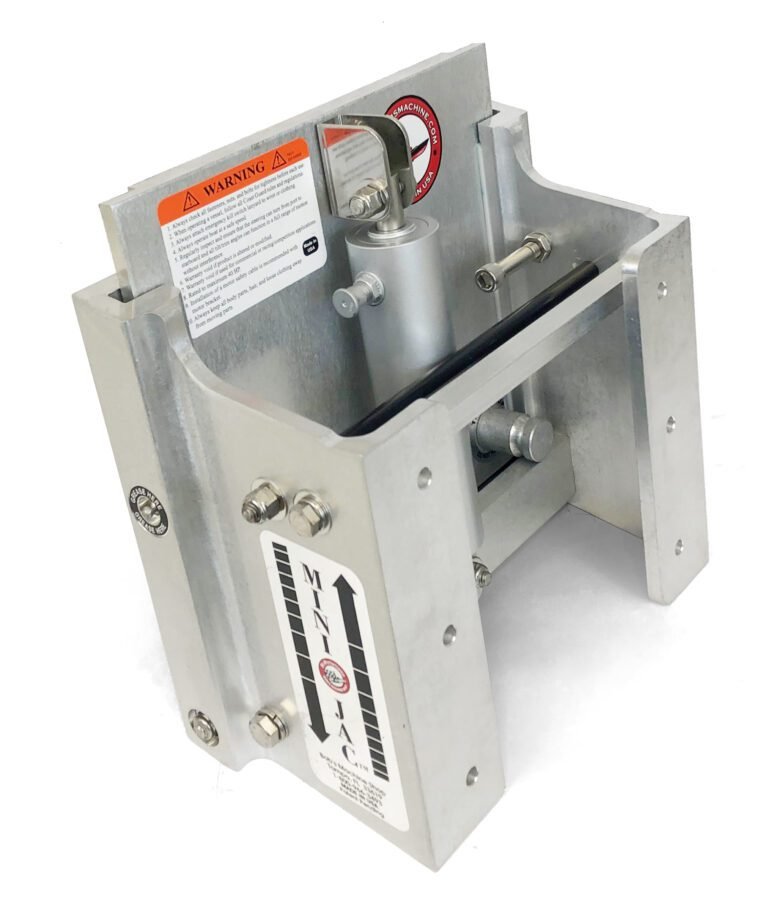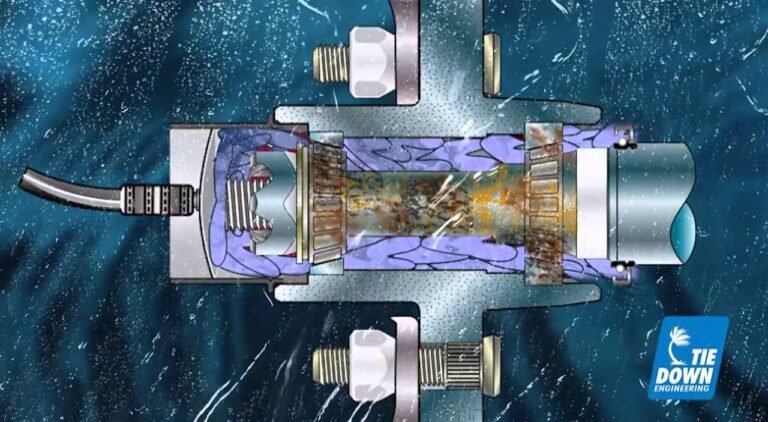How Long Does Fresh Caught Tuna Last in the Fridge | Storage Time 2025
If you have fresh caught tuna, it will last in the fridge for up to three days. If you’re not going to consume it within that time frame, freeze it immediately for best results.
If you’re lucky enough to have fresh caught tuna, you’ll want to know how long it will last in the fridge. The answer depends on a few factors, including how the fish was caught and stored.
Ideally, fresh caught tuna should be eaten within a day or two.
If it’s properly stored in the fridge, it can last up to four days. But if the fish was not properly chilled after being caught, its shelf life will be shortened.
To extend the shelf life of your fresh caught tuna, make sure to store it in the coldest part of your fridge and wrap it tightly in plastic wrap or place it in a covered container.
You can also freeze fresh tuna, which will keep it good for several months.
Fresh Caught Tuna in Fridge
If you’re lucky enough to have caught some tuna, here’s how to properly store it in the fridge. First, clean the fish thoroughly and remove any guts or bloodline. Next, wrap the fish tightly in plastic wrap or place it in a zip-top bag.
Be sure to squeeze out any excess air from the bag. Finally, place the fish on a plate or tray in the refrigerator and allow it to chilled for at least an hour before cooking. When stored properly, your fresh tuna will be good for 2-3 days in the fridge.
Now that you know how to store your fresh tuna, here are some tips on how to prepare it for a delicious meal. One popular way to cook tuna is by searing it on a hot pan with some olive oil. This method brings out the natural flavor of the fish and results in a juicy, tender filet.
Another option is to bake your tuna in the oven with simple seasonings like salt, pepper, and lemon juice. No matter how you choose to cook it, we guarantee that your fresh-caught tuna will be delicious!
How Long Does Cooked Canned Tuna Last in the Fridge
Cooked canned tuna will last in the fridge for up to 3 days. After that, it should be thrown out.
How Long is Tuna Fish With Mayo Good for in the Fridge
Tuna fish with mayo is a delicious and easy to prepare meal. However, it is important to know how long this dish will stay fresh in the fridge. Tuna fish with mayo will be good for up to three days in the fridge.
After this time, the tuna fish will begin to spoil and should be thrown out. If you are not sure if your tuna fish with mayo is still good, it is best to err on the side of caution and throw it out. It is better to be safe than sorry when it comes to food poisoning.
How Long Does Tuna in a Can Last
Tuna is a versatile and affordable seafood option that can be enjoyed in a variety of ways. While fresh tuna is always the best option when it comes to taste and quality, canned tuna can be a convenient and budget-friendly option. But how long does canned tuna last?
Canned tuna has a shelf life of 2-5 years when stored properly. This means keeping the cans sealed in a cool, dry place away from sunlight and heat. Once opened, however, canned tuna only lasts 3-4 days in the fridge before it starts to spoil.
So if you’re looking for an easy meal solution that won’t break the bank, reach for a can of tuna. Just be sure to use it up within a few days after opening!
How Long Does Vacuum Sealed Tuna Last in the Fridge
Assuming you are talking about commercially canned tuna, and not tuna you have vacuum sealed yourself, the answer is that it should last for up to 3 days in the fridge. This assumes that you have properly refrigerated the can of tuna after opening it. If not, then it will only last for 1-2 days.
Commercially canned tuna is typically packed in either water or oil. If packed in water, then it will last a bit longer than if packed in oil since water is a better preservative. However, both types of canned tuna will start to degrade after a few days in the fridge so it’s best to consume them relatively quickly after opening.
If you are looking to extend the shelf life of your canned tuna, then you can try freezing it. Frozen canned tuna will last for up to 6 months before starting to degrade. When ready to eat, simply thaw in the fridge overnight and enjoy within 24 hours.

Credit: cookgem.com
Can I Eat Tuna That Has Been in the Fridge for a Week?
If you’re wondering whether it’s still safe to eat tuna that’s been stored in your fridge for up to a week, the answer is generally yes. Tuna is a fairly resilient fish that can withstand being stored in the fridge for several days without losing its quality or becoming unsafe to eat.
Of course, there are always some exceptions to this rule.
If the tuna you’re planning on eating was previously frozen and then thawed, it should only be kept in the fridge for one to two days before being eaten. And if the tuna is starting to look or smell questionable, it’s probably best to err on the side of caution and toss it out.
In general, though, as long as your tuna looks and smells okay, it should be fine to eat even if it’s been sitting in your fridge for up to a week.
How Do You Store Fresh Caught Tuna?
If you’re lucky enough to have fresh-caught tuna, you’ll want to store it properly to ensure that it stays fresh. Tuna is best if eaten within a day or two of being caught, but with proper storage it can last up to a week.
To store tuna, first clean and gut the fish as soon as possible after catching it.
Next, wrap the tuna in plastic wrap or place it in a covered container and store it in the refrigerator. If you plan on eating the tuna within a day or two, there’s no need to do anything else. However, if you want the fish to last longer, you can also freeze it.
When storing frozen tuna, be sure to wrap it tightly in freezer-safe packaging. Frozen tuna will keep for up to six months. When you’re ready to eat it, thaw the fish overnight in the refrigerator before cooking.
How Do You Keep Tuna Fresh in the Fridge?
It’s no secret that tuna is one of the most popular seafood items out there. Whether it’s canned, fresh, or frozen, tuna is a versatile fish that can be used in a variety of dishes. While it’s relatively easy to find tuna at your local grocery store, keeping it fresh can be a bit more challenging.
If you’re not careful, tuna can spoil quickly and become unsafe to eat.
So, how do you keep tuna fresh in the fridge? The key is to properly store it from the moment you bring it home from the store.
Here are a few tips to follow:
-If you plan on consuming the tuna within a day or two of buying it, simply place it in the refrigerator uncovered. This will allow the air to circulate around the fish and help prevent spoiling.
-If you’re not going to use the tuna right away, wrap it tightly in plastic wrap or place it in an airtight container before storing it in the fridge. This will help keep oxygen out and reduce the risk of spoilage.
-Tuna should be consumed within 3-5 days of being purchased.
After that time frame, there is a greater chance that bacteria will start to grow and make the fish unsafe to eat.
By following these simple storage tips, you can enjoy fresh tuna for days!
How Do You Know If Tuna is Bad?
If you’re not sure whether tuna is bad, there are a few ways to tell. First, take a look at the color of the tuna. If it’s brown or red, it’s probably bad.
Second, smell the tuna. If it smells fishy or sour, it’s probably bad. Finally, touch the tuna.
If it feels slimy or sticky, it’s probably bad. If you’re still not sure, the best way to know for sure is to taste a small piece of the tuna.
You've Been Storing Canned Tuna Wrong This Entire Time
Conclusion
In conclusion, it is important to know how long fresh caught tuna will last in the fridge. This fish is a very versatile one that can be used in many different dishes. It is also a healthy choice for those who are looking for a lean protein.
When stored properly, fresh caught tuna will last up to three days in the fridge.





